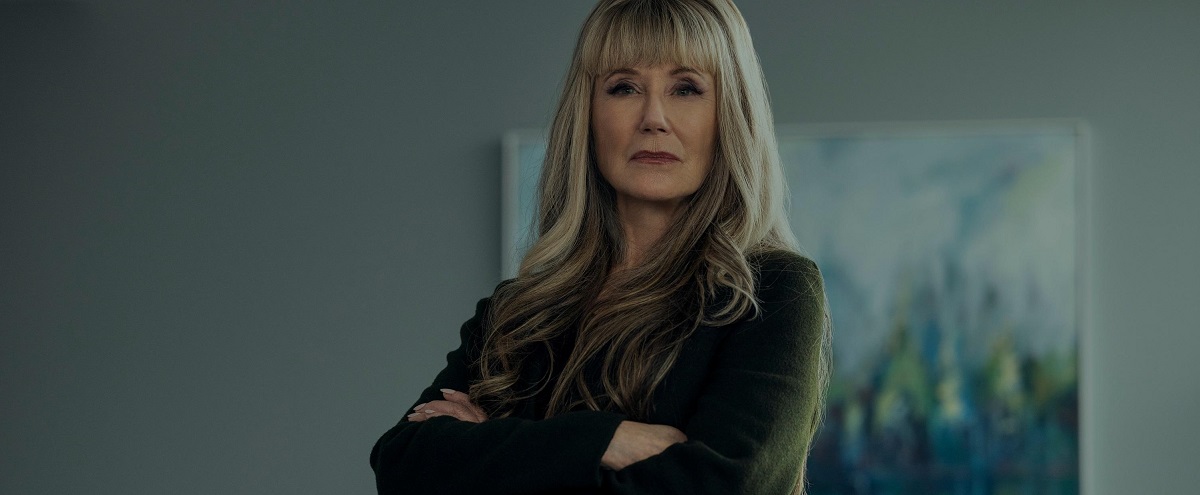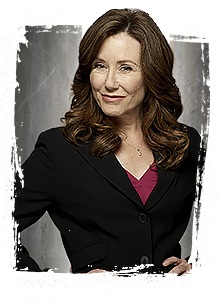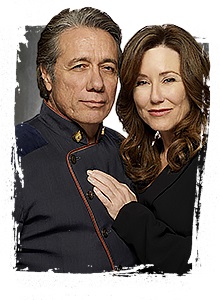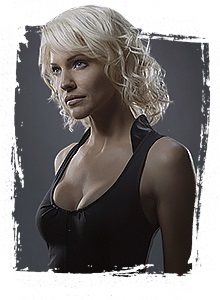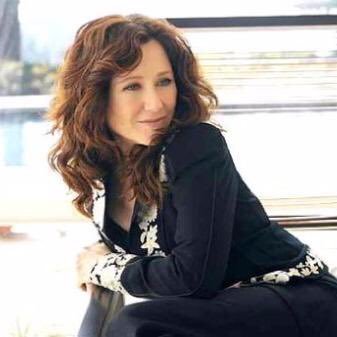
Mary McDonnell is one of those increasingly rare performers…
Vernon Scott
October 16, 1992
HOLLYWOOD — Mary McDonnell is one of those increasingly rare performers who come to Hollywood from Broadway to become movie actresses as opposed to movie stars.
Artistic pretentions aside, the New York theater is a better place to steep performers in the refinements of acting than is TV, which transforms a pretty face or bountious body into instant ‘stardom,’ with or without talent.
Before TV, prior to World War II, New York theater was an enormous talent pool for movies. Some of the country’s best actors and actresses were trained in the crucible of the footlights. By the time they arrived in Hollywood they knew their stuff.
Other top-flight performers were brought along slowly by studios, first in B pictures and supporting roles.
Broadway has fallen on hard times. The studio star system is long dead. Television is filling the void somewhat with sitcom actors and actresses. Fashion models and commercial cuties are joining the movie ranks too.
You can tell the difference when an actress of McDonnell’s caliber appears in a film. She stands out.
McDonnell played the harried urban mother in ‘Grand Canyon’ with Kevin Kline, Danny Glover and Steve Martin.
She is best known for her role as Stands With A Fist, the white woman raised in the Sioux tribe in ‘Dances With Wolves,’ for which she won an Oscar nomination for best supporting actress. Currently, she is the only female cast member of ‘Sneakers,’ playing Robert Redford’s ex- girlfriend.
Odds are against McDonnell competing with, say, Julia Roberts, for big-budgeted movie roles. She’s a classically trained actress, not a glamour girl with an established box-office reputation in this bottom- line town.
In a Santa Monica restaurant recently McDonnell, wearing a printed silk dress, her brown hair softly coifed, looked lovely and feminine. Other diners, who might not have known her name, recognized and admired her down-played natural beauty.
‘There is less and less work in New York,’ she said, ‘but some fine actresses have come from the stage in recent years — Kathy Bates and Sigourney Weaver and Glenn Close.
‘There’s no question about the differences in techniques and attitudes between stage and camera. For me the adjustments are made unconsciously.
‘The more I did both, the clearer it became that on stage you’re action is to give. In front of the camera, I allow the audience to take. I let the camera lens come in for complex, internal activity, thoughts and feelings.
‘A different energy level is involved. In the theater you have to give out viscerally.
‘Television is a different animal altogether. It’s a very hard medium to do realistically. I’ve never done a series that demanded reality. Sitcoms require a certain skill different from movies and stage. I have a hard time understanding the accepted level of humor.
‘TV series often don’t produce well-rounded characters, especially in comedy. I know because I co-starred with Elliott Gould eight years ago in ‘E/R,’ which lasted one season.
‘To me there’s a difference between being a character and playing at being one. It’s necessary to become so completely absorbed in a role there isn’t time to think about yourself or even what you’re doing when the curtain opens or the camera starts to roll.
‘A great deal depends on the role. My part in ‘Sneakers’ was small and didn’t demand the kind of skill for ‘Dances With Wolves.’ But still, she was facing dilemmas and must be made to be convincing and believable.
”Dances With Wolves’ was a terribly tall order. But I try not to think about roles in degrees of difficulty.’
All the same, McDonnell faced her toughest role in ‘Passion Fish,’ playing a New York soap opera star left a paraplegic by an automobile accident. The character-driven drama finds her a helpless recluse thrown together with a confrontational caretaker (Alfre Woodard) in Louisiana’s backwoods bayou country.
‘I found it frightening to portray a woman whose life becomes a tragedy,’ McDonnell said. ‘We all face crises and ask, ‘Why me?’ There’s no returning to the past and bitterness sets in.
‘As an actress it was very frightening imagining how it would feel to lose the use of my legs — to be one thing, then suddenly another. To be all alone, unable to create a support system around yourself. Very scary.
‘Fortunately, I was in Louisiana on location for almost the whole movie, so I didn’t bring home the depression to my husband (actor Randy Mell).
‘I’d like to think my next role will be as interesting and difficult but not as emotionally taxing.’NEWLN:
